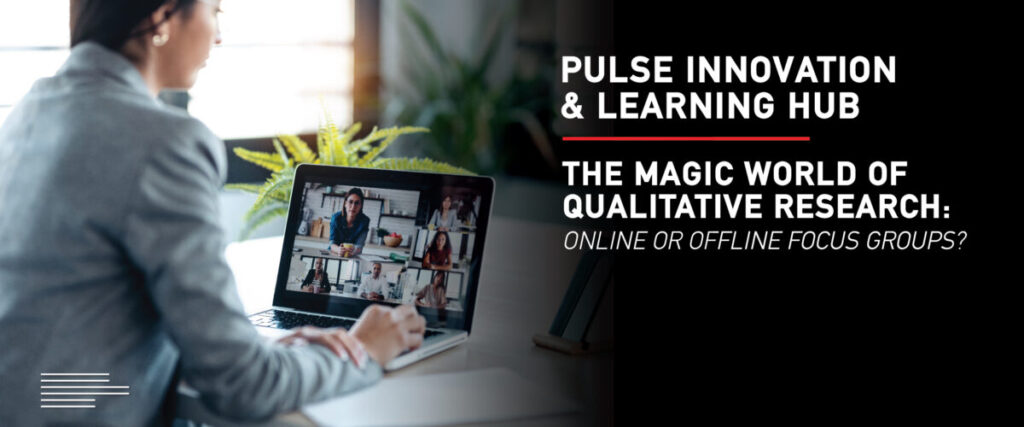by Mika Savva, Head of Qualitative and Business Development
Before the pandemic, almost all focus groups were conduced physically, not only in Cyprus, but also in other parts of the world.
Participants sit around the table, in a specially designed studio room with speakers, two-way mirror, recording, projecting and other facilities and clients sit in the control room, a sound proof room with observing facilities, watching and hearing the discussions live, without being noticed by participants.

Although physical interaction is undoubtedly more intimate and comprises a more ‘natural’ setting for building rapport between participants, online focus groups which have started out as the ‘only or last alternative’ during the socializing restrictions imposed by the pandemic, have become increasingly popular and are still preferred by the majority of researchers and their clients, due to the multiple advantages and new opportunities they offer:
- The recruitment process is facilitated to a great extent, broadening the accessibility of participants who are otherwise difficult to recruit, like people from different districts/areas/countries, people with mobility difficulties, people with busier schedules etc, allowing for a better representation of target audiences.
- The moderator has a better control over the discussion.
- Better view of participants’ faces (as they are facing directly at the camera), reveals their emotions through facial expressions (emotional cues).
- More cost effective for researchers and clients.
- Enhance participation acceptance (higher rate of participation is achieved).
- Rapport-building amongst participants and moderator, is still possible in a non-physical interaction setting. As the new trends are progressing and online meetings are becoming more and more popular, building rapport and creating a casual, relaxing environment online is becoming easier, with people being exposed to such settings almost every day (work-related meetings, school-related meetings etc).
In a nutshell, online focus groups not only offer more benefits than offline, like cost and practicality but are also more in-tune with the new lifestyle trends of our time.
